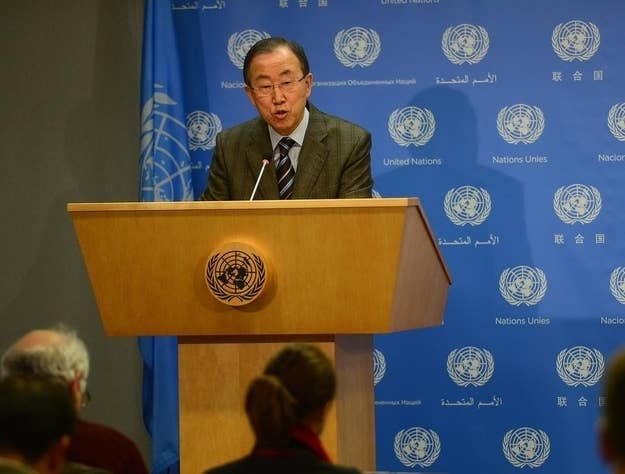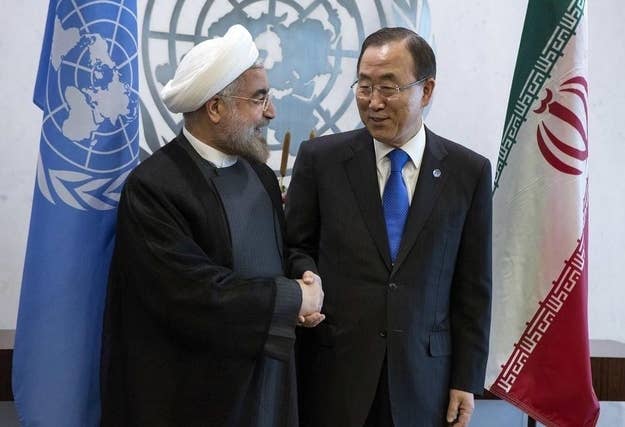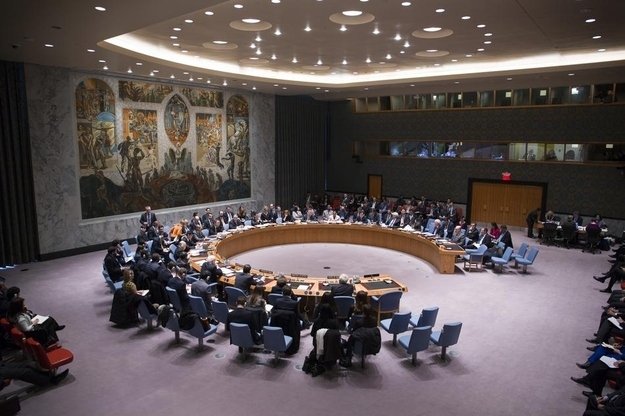Less than 24 hours after U.N. Secretary-General Ban Ki-moon extended an invitation to Syria's closest ally, Iran, to attend peace talks in Montreux, Switzerland, he rescinded the offer.

Ban was "deeply disappointed" at Iran's statements rejecting a communique adopted by international powers at a 2012 Geneva conference on Syria, his spokesman said.
After Ban extended the surprise invitation to Iran on Sunday, the Syrian opposition threatened to withdraw from the talks and the U.S. demanded the invitation be retracted if Iran did not accept the road map to end Syria's bitter civil war, which called for a transitional government.
Tehran has been a crucial backer of Assad in his fight against an insurrection that will be three years old in March. It has provided him with lifelines in economic and military aid — and its soldiers have reportedly trained Assad's forces, helped to guide their strategy, and even put boots on the ground.
Iran's U.N. envoy reaffirmed Tehran's rejection of the 2012 communique adopted in Geneva and said his government would not join the Syria talks scheduled to start on Jan. 22, if required to accept the 2012 road map.
He said in a statement:
"Iran has always been supportive of finding a political solution for this crisis. However the Islamic Republic of Iran does not accept any preconditions for its participation in Geneva II conference.If the participation of Iran is conditioned to accept Geneva I communique, Iran will not participate in Geneva II."

Nesirky told reporters Ban "is dismayed" at the developments and that despite assurances from Iranian officials, the country had "made a disappointing public statement" with its refusal to accept the terms of the peace talks this week.
"Given that it has chosen to remain outside that basic understanding, he has decided that the one-day Montreux gathering will proceed without Iran's participation," Nesirky said at a press briefing.
In an interview with BuzzFeed earlier this month, one Iranian official suggested a key reason the country could make a difference in negotiations was its unique influence with Assad.
The official said that Iran had been "quite instrumental and helpful in persuading Syria to accept the chemical weapons deal" implemented this fall, in which Assad agreed to give up his stockpiles of the weapons to avoid a U.S. air strike. Iran, the official said, could play a similar role in Geneva. "They should invite the countries that have influence inside Syria and excluding Iran will not be helpful," the official said, requesting anonymity because of the subject's sensitivity.

In a statement, U.S. State Department spokeswoman Jen Psaki, responded:
"As we've stated many times, the purpose of the conference is the full implementation of the Geneva communique, including the establishment by mutual consent of a transitional governing body with full executive authorities. We are hopeful that, in the wake of today's announcement, all parties can now return to focus on the task at hand, which is bringing an end to the suffering of the Syrian people and beginning a process toward a long overdue political transition."
